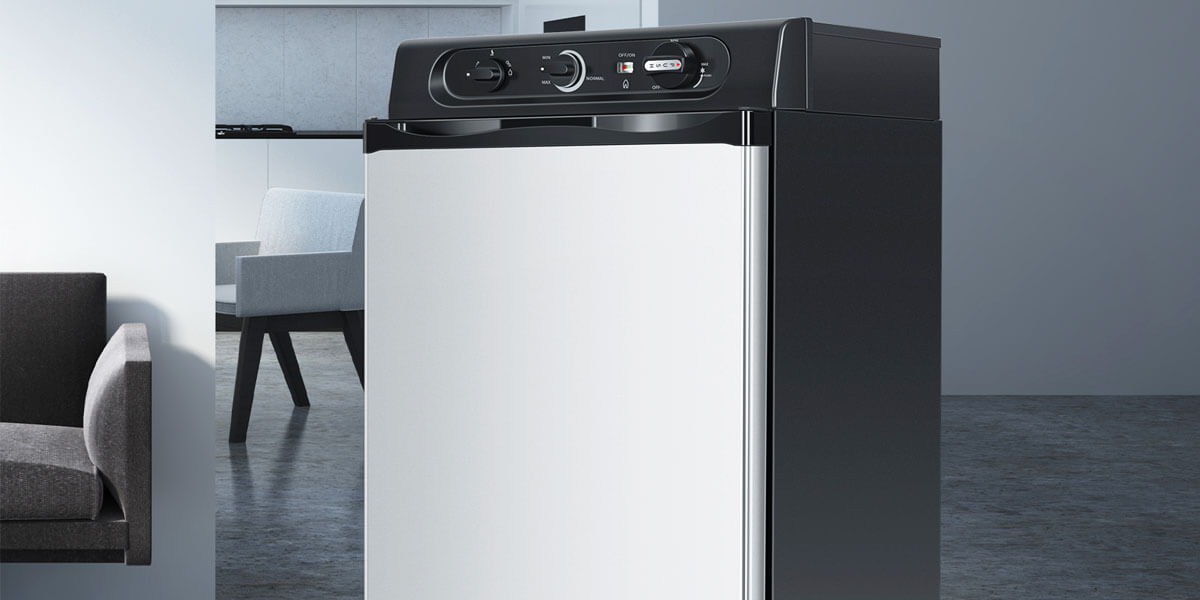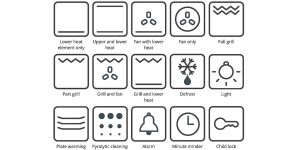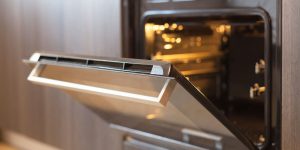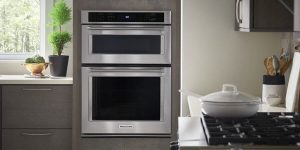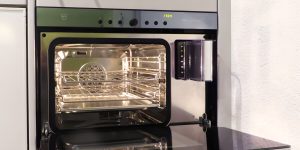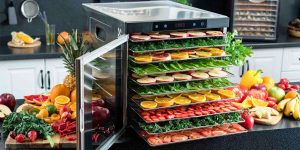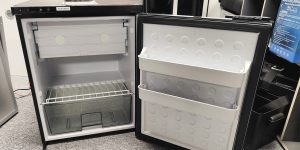The question of “How does a propane refrigerator work” seriously concerns many people who are about to make such a purchase. The mechanism behind these propane-powered appliances may seem intricate, but it’s really fascinating and highly efficient.
This article aims to unravel the mystery of propane refrigeration, delving into its intricate mechanics, various applications, and vital considerations before purchasing. Understanding how propane refrigerators work not only lets us admire the cleverness embedded in their design but also equips us to make knowledgeable choices about their appropriateness for our particular requirements. So let’s turn up the heat on this seemingly paradoxical topic and explore how warmth can generate coolness in the world of propane refrigeration.
The basics of propane refrigeration
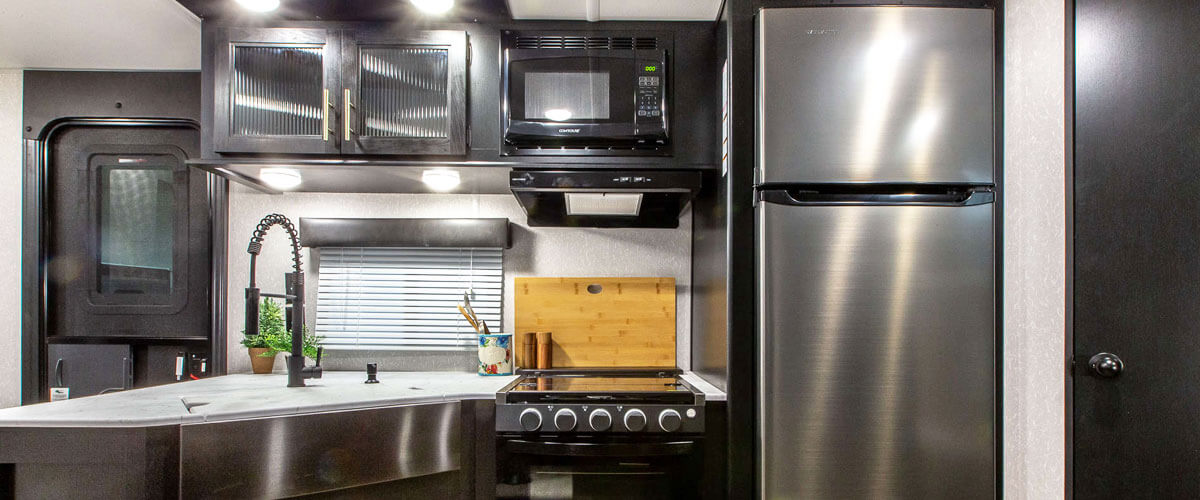
Yes, indeed, propane refrigerators work differently than their electric counterparts. Instead of relying on a compressor and refrigerant, they use heat, ammonia, hydrogen gas, and water in an ingenious setup known as an absorption refrigeration system. The main components of this system include:
- Generator: Heated by burning propane, it boils the ammonia-water solution, separating ammonia gas from water.
- Separator: Collects the boiled-off ammonia gas.
- Condenser: Cools the ammonia gas, transforming it into a liquid.
- Evaporator: Mixed with hydrogen gas, the liquid ammonia evaporates, causing a cooling effect.
- Absorber: Absorbs the ammonia gas back into the water, restarting the cycle.
Unique in design and operation, propane refrigerators provide cooling without needing electricity — a vital feature for off-grid living or areas with unreliable power supply.
The absorption refrigeration cycle
The operation of a propane refrigerator revolves around the absorption refrigeration cycle, comprising three main stages—absorption, desorption, and condensation. Here’s how they work:
- Absorption: The cycle begins in the absorber, where the ammonia gas (produced in the evaporator) is absorbed back into the water.
- Desorption: Within the generator, the heat generated by the combustion of propane induces the dissociation of ammonia from water — a phenomenon known as desorption.
- Condensation: The ammonia gas proceeds to the condenser, where it cools down and becomes a liquid.
With these three stages working harmoniously, the cycle repeats itself, providing continuous cooling.
Propane as the energy source
Propane serves as the primary energy source in propane refrigerators. It has several notable advantages, including:
- Availability: Propane is widely accessible, even in remote areas, making it ideal for off-grid applications.
- Efficiency: It provides a great deal of heat for a small amount of fuel, making propane refrigerators incredibly efficient.
- Environmental impact: Propane is considered clean-burning with less environmental impact compared to many other fuels.
The propane flame in the system provides the necessary heat to boil the ammonia-water solution, which initiates the cooling process.
The role of heat and pressure
Heat and pressure play critical roles in the operation of a propane refrigerator. Here’s how:
- Heat: Generated by burning propane, the heat separates the ammonia from the water in the generator. This creates a temperature differential that drives the cooling process.
- Pressure: Changes in pressure at various stages of the cooling cycle facilitate the movement of ammonia and hydrogen gasses through the system.
Understanding the interplay between heat and pressure is key to appreciating the intricate operation of these devices.
Efficiency and performance
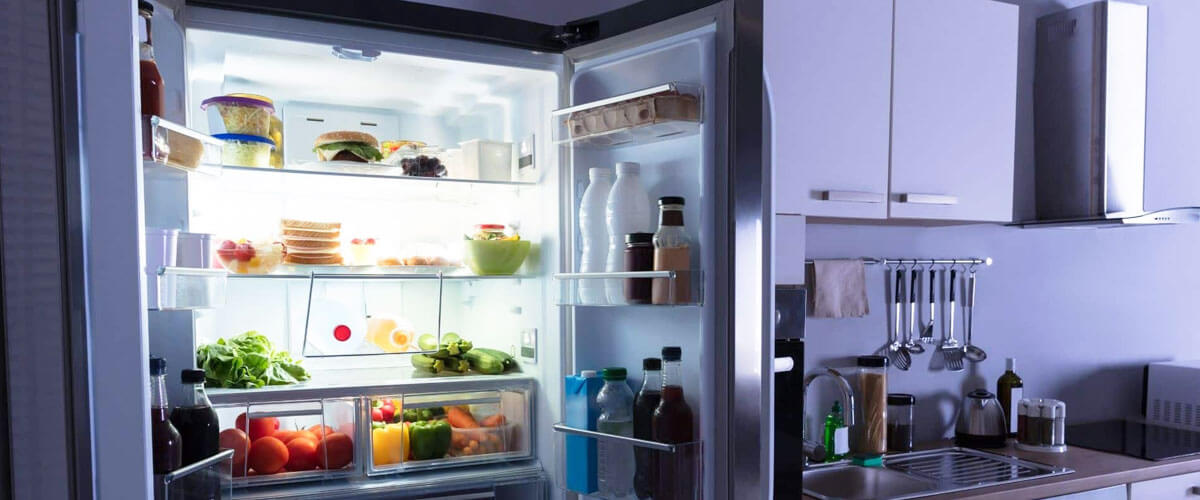
While propane refrigerators, also known as gas-powered refrigeration systems, might not match electric models in energy efficiency, they excel in unique areas like off-grid operations and independence from electricity. A fridge run on propane provides consistent cooling without reliance on electricity, which is perfect for mobile living.
| Features | Description |
|---|---|
| Energy consumption | Propane refrigerators do consume fuel. However, the quantity varies based on the model and efficiency level. Even though they might not be as energy-efficient as modern electric refrigerators, their utility in off-grid environments often offsets this consideration. |
| Independence from electricity | The ability to function without electricity is a key feature of propane refrigerators. This makes them ideal for places with unreliable or non-existent electrical supplies. |
| Benefits in remote or off-grid locations | In areas where electricity is scarce or expensive, propane refrigerators offer a reliable, practical solution. They are unaffected by power outages, further enhancing their appeal. |
Propane refrigerators are well-suited to a range of environments, including:
- Recreational vehicles (RVs): These refrigerators provide consistent cooling without reliance on electricity, perfect for mobile living.
- Cabins and cottages: Often off-grid or semi-off-grid, these dwellings benefit from the reliable, efficient cooling provided by propane refrigerators.
- Off-grid homes: For residences entirely independent of the electrical grid, a propane refrigerator is a valuable asset.
While they might not be the go-to choice for typical urban settings, propane refrigerators demonstrate their worth in specific applications, ensuring reliable refrigeration where conventional models fall short.
Specific considerations for ventilation
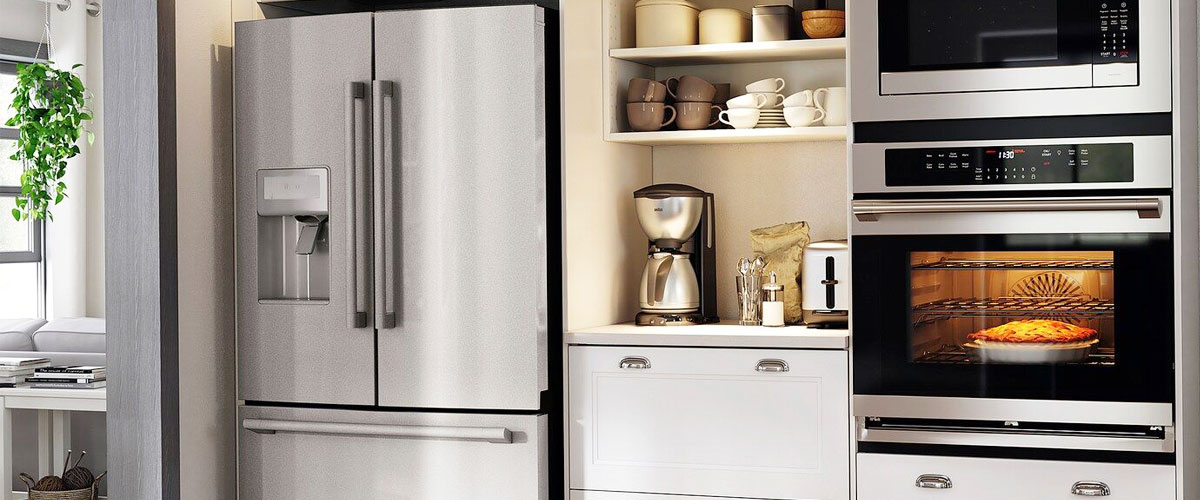
Ventilation is a critical factor when installing and operating a propane refrigerator, primarily due to the combustion process involved. The operation of a gasoline-powered refrigerator involves burning propane, which requires a steady supply of air. Without sufficient air, incomplete combustion may result, leading to the creation of carbon monoxide. Here are key considerations regarding ventilation:
- Air supply for combustion: The burning of propane requires a steady supply of air for the combustion process to occur smoothly. Without sufficient air, incomplete combustion may result, leading to the creation of carbon monoxide, a potentially harmful gas.
- Ventilation gaps: Propane refrigerators require specific ventilation gaps for proper operation. These gaps allow the heat generated by the burning propane to escape, maintaining the cooling efficiency of the refrigerator. Manufacturers provide specific guidelines on the required size and placement of these gaps, which should be strictly followed.
- Exterior ventilation options: In many cases, especially in confined spaces like RVs, an exterior vent is necessary to remove the excess heat and combustion gasses safely from the living area. Such an arrangement also improves the overall efficiency of the refrigerator.
- Regular inspection and maintenance: It’s important to conduct regular checks and maintenance of the ventilation system to ensure it remains clear and functions optimally. Any blockages or issues should be addressed promptly to prevent operational inefficiencies or safety risks.
Ventilation considerations are integral to the safe and efficient use of propane refrigerators. A properly ventilated installation reduces potential hazards and enhances the refrigerator’s performance, contributing to an enjoyable and worry-free off-grid living experience.
FAQ
Can a propane refrigerator be used in any location or climate?
Generally, propane refrigerators are versatile and can be used in a variety of locations and climates. However, their performance might be affected by extreme temperatures. In hot climates, a propane refrigerator may have to work harder to maintain low internal temperatures, which can increase fuel consumption. In contrast, in very cold climates, the propane may not vaporize properly, impacting the refrigerator’s performance. It’s always a good idea to check the manufacturer’s guidelines for optimal operating temperatures.
Can a propane refrigerator operate on other types of fuel besides propane?
Propane refrigerators, sometimes known as propane-powered refrigeration systems, are specifically designed to operate on propane. However, some models may also run on other fuel types, like natural gas. Operating the refrigerator on an unsuitable fuel type could result in inefficiencies or even potential safety hazards.
Are propane refrigerators noisy during operation?
One of the significant advantages of propane refrigerators is their quiet operation. Unlike conventional electric refrigerators, they do not use compressors, which are the primary noise source. The absorption cooling cycle in a propane refrigerator is nearly silent, making it an excellent choice for peaceful environments like cabins or RVs.
Are propane refrigerators environmentally friendly?
Yes, propane refrigerators can be considered environmentally friendly in several ways. First, propane powers refrigeration in a way that results in less pollution compared to many other fuel types. Additionally, the propane refrigerator functions without the need for electricity and can reduce demand on the power grid. However, like any fuel-burning appliance, they do contribute to greenhouse gas emissions, albeit at a lower level than many other appliances. Regular maintenance can help ensure your propane refrigerator operates as cleanly and efficiently as possible.
